Summary
- Philosophical anime series like Psycho Pass, Death Note, and Ergo Proxy address complex societal issues and ethical dilemmas.
- Tokyo Ghoul, Children of the Whales, and Neon Genesis Evangelion explore themes of survival, human emotion, and the meaning of existence.
- Parasyte: The Maxim, Monster, and Mushi-Shi delve into deeper questions about morality, free will, and the impact of human actions.
Throughout its history, anime has featured shows covering a vast expanse of genres and topics for a diverse audience. But some of the most unique, artistic, ambitious, interesting, and evocative anime series are those which tackle philosophical questions and social issues. While a fairly limited sub-genre by comparison, it represents some of anime’s most important developments and well-executed stories.
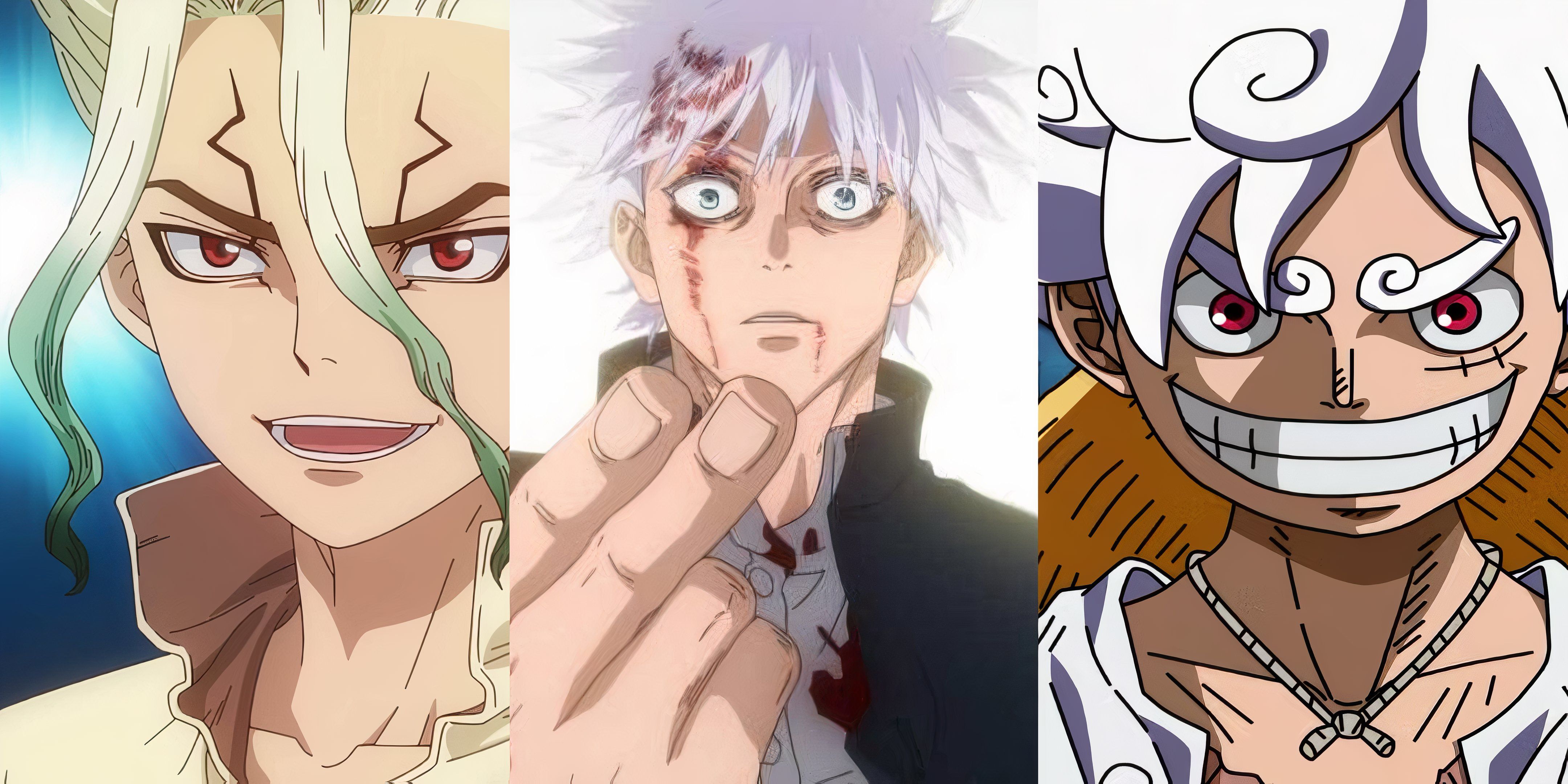
Related
Netflix houses a great anime collection. Here aew come of our favourites.
Series in the contemplative and philosophical realm of anime have continually grown and accumulated levels of fame from pop culture staples to cult classics. When it comes to philosophical anime, there’s something for just about every fan interested in philosophy, from discussions of law and morality, to examinations of war and religion, questions about existence, and observations on humanity and nature.
9
Psycho Pass
Law, Free Will, Justice, Fear, Peace
Set in a futuristic society, law and peace are redefined, and criminality and criminal justice are determined by artificial intelligence. In 22nd-century Japan, a computer network called the Sybil System is used in law enforcement weapons to scan the brains of Japanese citizens. This process is a “Psycho Pass”, and generates a Criminal Coefficient score signifying how likely a citizen is to commit a crime or cause harm.
A high Criminal Coefficient enables a law enforcement member to execute or arrest a citizen, even if a crime has not yet been committed.
The series follows protagonist rookie Inspector Akane Tsunemori, and her team of Enforcers, hunting a criminal mastermind immune to the Sibyl System. The series is a strong commentary on how societies implement laws, the dangers and limits of AI, and the concept of justice, raising multiple important questions along the way:
Do we need to reconsider how we define right and wrong? Is fear the solution to a peaceful, crime-free society? If negative emotions equal criminal intent, what does that mean for free will, expression, and trauma survivors? Does the comfort of society justify taking a life, especially the lives of individuals who have endured hardships but are innocent of any crime?
8
Tokyo Ghoul
Hunger, Cannibalism, Survival, Nihilism, Futile Altruism
Every species eats to live. To eat, many species need to kill. Humans, at the top of the food chain, have killed living things to eat for centuries. What happens when a species emerges that needs to eat people to live? When their place in the world is threatened, to what extent will humans go to protect it?
When eating to survive is villainized, and the world is reduced to the simplicity of hunger, of eating or dying, should we re-examine humanity’s remorselessness in killing and eating living things every day? Is altruism pointless and is embracing destruction ever justifiable?
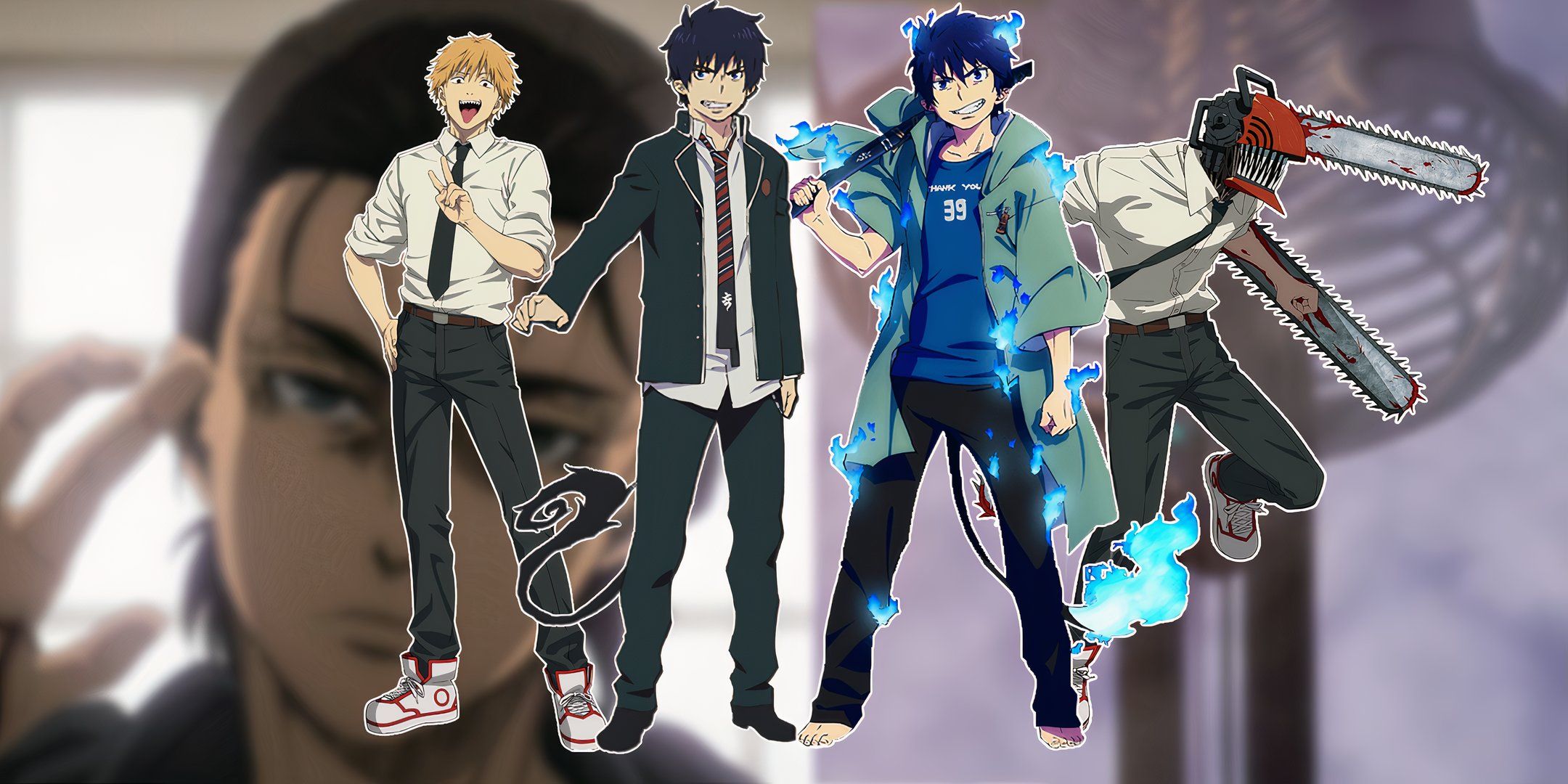
Related
10 Best Half Human Characters In Anime, Ranked
These human hybrid characters aren’t just super-powered; they’re the icons of their respective anime.
In Tokyo, Japan, humans live terrified of mutant humanoids called Ghouls, which have superhuman abilities that demand them to consume human flesh to survive. When the lead character, college student Kaneki Ken becomes a half-ghoul via organ implantation, he is thrown into a violent struggle between his dual natures and instincts.
While the show’s popularity dropped significantly with its sequel, the original Tokyo Ghoul was highly successful and explored complicated philosophical issues even in all its brutality.
7
Death Note
Power, Morality, Crime, Value of Life, the God Complex
Hugely popular in the anime community, Death Note has garnered the loyalty it has and become a classic for good reasons, one of those being the themes it explores and executes with high suspense and high stakes. Even with all its suspense, its interesting and at times endearing characters, Death Note makes a clear and engaging commentary on the murkiness of morality and the human relationship with power.
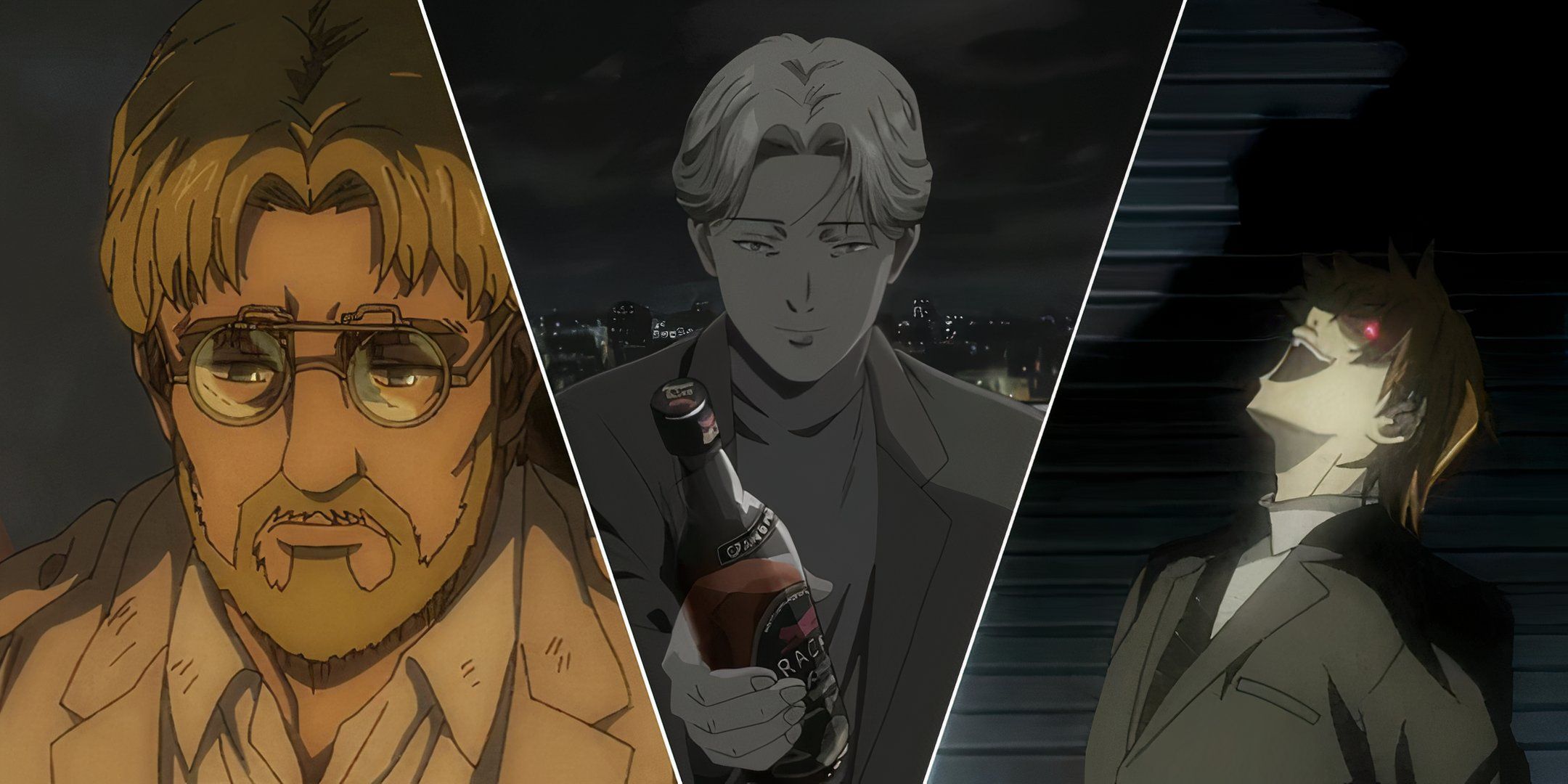
Related
When high school genius Light Yagami finds a Death Note, a notebook owned by a Shinigami (Japanese gods of death), he discovers writing names in the notebook causes those people to die. Despite daunting consequences, Light uses the notebook to secretly and rampantly kill criminals to erase evil from the world.
Law and justice are thrown into chaos as he becomes increasingly obsessed with this newfound power. Death Note compels watchers to question whether humans can really be trusted with the authority to determine life or death, how much value people place on life, how power affects a person over time, and when it’s justifiable to take a life.
6
Ergo Proxy
Survival, Manipulation, Purpose, Humanity, Artificial Life
Ergo Proxy combines science fiction and philosophy in its story-telling. While complex and sometimes hard to follow, the series is riveting and creative. Set in the aftermath of a series of sudden ecological disasters that eradicated most of the human race, surviving humans live in protected cities called Domes attempting to survive and rebuild a hospitable world.
Supposedly unable to reproduce, human communities grow artificial humans to sustain their populations and live in harmony with engineered android beings called AutoReivs.
Social order and safety of the domes are threatened when a string of murders occur by AutoReivs infected with Cogito virus, which makes them experience self-awareness. The Romdeau Dome Regent’s daughter and her AutoReiv are tasked with investigating the events, while Romdeau’s administration conducts research experiments on a humanoid lifeform called a Proxy, suspected to conceal the secret of humanity’s survival.
Ergo Proxy offers a unique, surprising perspective on what humans would do to each other out of selfishness, and humanity’s constant search for a purpose greater than themselves.
5
Children Of The Whales
Human Emotion, Humanity, Adaptation, Sacrifice, War
Children of the Whales is a must-see for fans who enjoy philosophy and fantasy. In a desolated world, a lone island ship called the Mud Whale drifts over endless seas of sand, housing a population of 513 humans. The society’s majority consists of Marked individuals, people who are able to channel their emotions into magical abilities called Thymia, but only live for 30 years.
When the Mud Whale’s archivist, Chakuro, discovers a strange new island, and meets a lone hostile and wounded girl who completely lacks emotion, the truth about the Mud Whale begins rising to the surface. The fate of its people hangs in the balance, as they are torn between hope and fear of a world beyond the sand.
Beautiful and haunting at once, Children of the Whales artistically delves deep into the meaning and importance of human emotion and the question of what it means to be human. In a world where war is a lifestyle, and emotions are precious, while adaptation and survival take precedence, the series offers a devastating question of what sacrifices humans are willing to make.
4
Neon Genesis Evangelion
Religion, War, Meaning of Life, Human Suffering, Psychology
As admired as it is controversial, Neon Genesis Evangelion contains multiple philosophical and psychology-inspired references and representations through its characters.
When monstrous violent creatures called Angels arrive on Earth with the mission of destroying what remains of humanity after a global disaster, as foretold in the Dead Sea Scrolls, Shinji Ikari is summoned by his estranged father to a futuristic Tokyo, Japan.
Shinji is then compelled to join the war and pilot an Evangelion, a biological weapon of war organically similar to Angels. What ensues is a battle for human survival, between recreation and destruction.
Throughout the series, characters are forced to fight and overcome internal struggles, and the meaning and value of human existence is called into question, as the species attempts to find the answer to creating a better world, free of isolation and the pain humans have caused each other.
3
Parasyte: The Maxim
Meaning of Existence, Question of God, Nature of Morality, Parasitic Relationships, Ecological Crisis
Quick-paced, emotional, and gruesome, Parasyte is one of the first anime that comes to mind when fans think of a series that delves into philosophy and questions about a higher power. When a worm-like alien species descends upon the world, requiring living hosts for survival, Shinichi Izumi, a high school student leading a quiet life, is taken over by one of the creatures that burrows into his arm in a failure to reach his brain.
Humans begin calling the invading species Parasites, and Shinichi names the one in his right arm Migi.
In a world torn between two species fighting for their lives, Shinichi and Migi forge a strong working relationship, often threatened by parasites and humans alike due to their relationship’s uniquely symbiotic nature.
The series challenges viewers to question the purpose of human and other species’ existence, humanity’s relationships with and treatment of other species and environments, and the ways morality is tailored to suit humanity’s needs. When neither species can fully accept coexistence, which one is better left alive on earth?
2
Monster
Nature vs Nurture, Evil, Political Corruption Post-WWII, Free Will, Morality
A historical work, Monster has drawn both admiration and controversy, largely because of the slower pacing and interpretive ending. These elements, however, are somewhat fundamental to the perspective of the series, and its concepts.
The anime takes place in post-war Germany, and tells the story of neurosurgeon Dr. Kenzo Tenma, exhausted by the politicization of medicine. When he chooses to save an injured boy rather than operate on the mayor, the surgeon’s reputation is ruined, resulting in the loss of his job and fiancee.
Following the operation, the boy Dr. Tenma saved has vanished, and the doctors who fired him are murdered, making him the prime suspect. As the neurosurgeon embarks on a dark and tragic journey to prove his innocence and uncover the secrets of his rogue patient’s past, the series explores the nature of human evil and the extent of its impact on everyday life.
1
Mushi-Shi
Nature, Ephemerality, Harmony, Peace, Healing
Highly unique and aesthetically and atmospherically unmatched among many of its peers, Mushi-Shi embodies the best of what philosophical anime has to offer, with its beauty lying in its simplicity. Following the life and encounters of Ginko, a traveler and healer sensitive to lifeforms called Mushi, across a fantastical period in Japan, most of the episodes can be experienced in any order and individually.
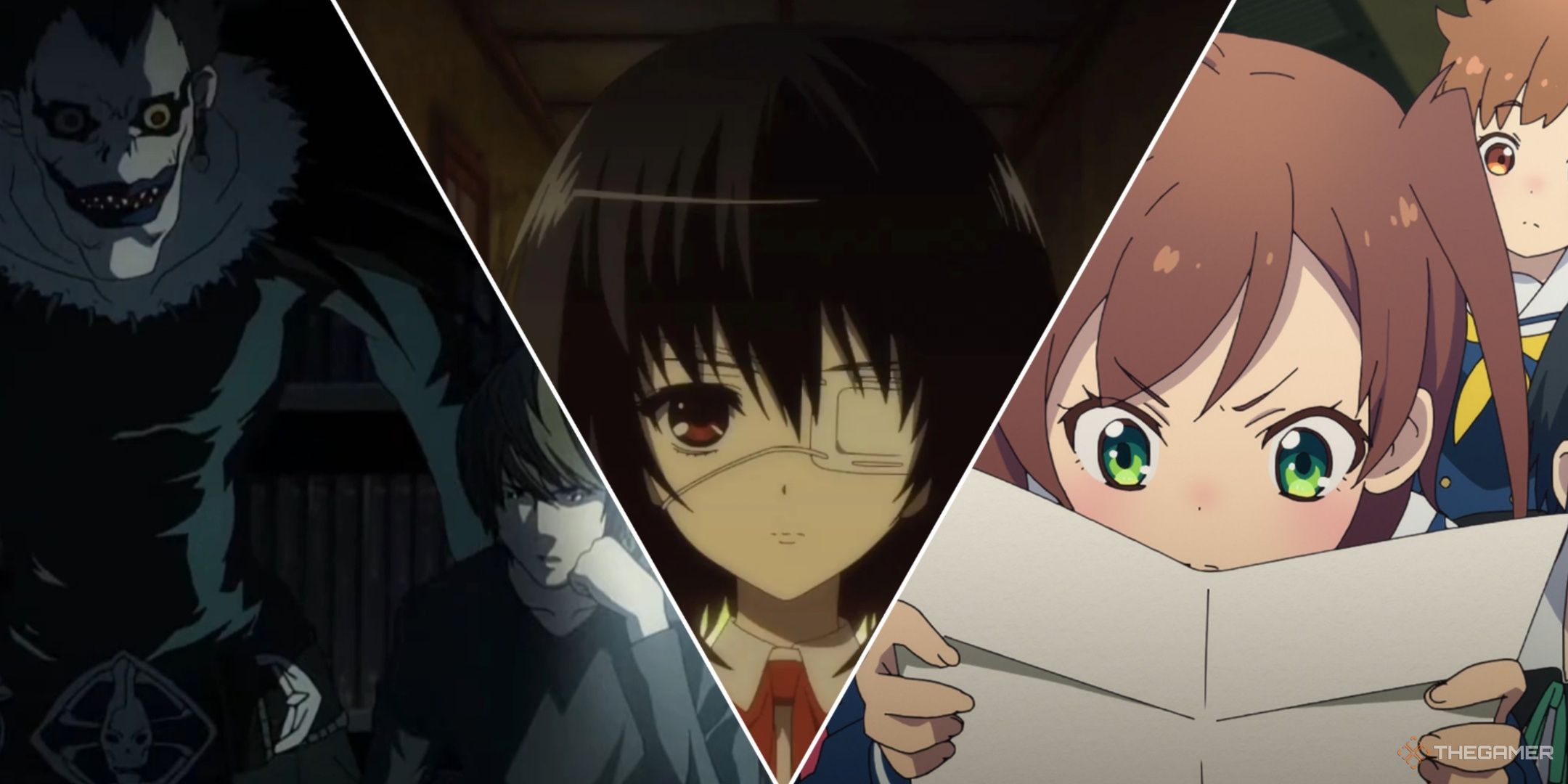
Related
Visit supernatural realms and prepare for the unexpected in these supernatural anime.
As beautiful as it is emotional while avoiding excessive complexity, Mushi-Shi incorporates Shinto tradition into modern storytelling and is best experienced as a collection of stories that teach moral lessons and provide insights into humanity’s relationship with nature, spirituality, and the fleeting nature of life.
And beneath its layers of art, spirituality, and nature, the anime subtly and delicately explores mental health, healing from traumatic experiences, and finding peace.
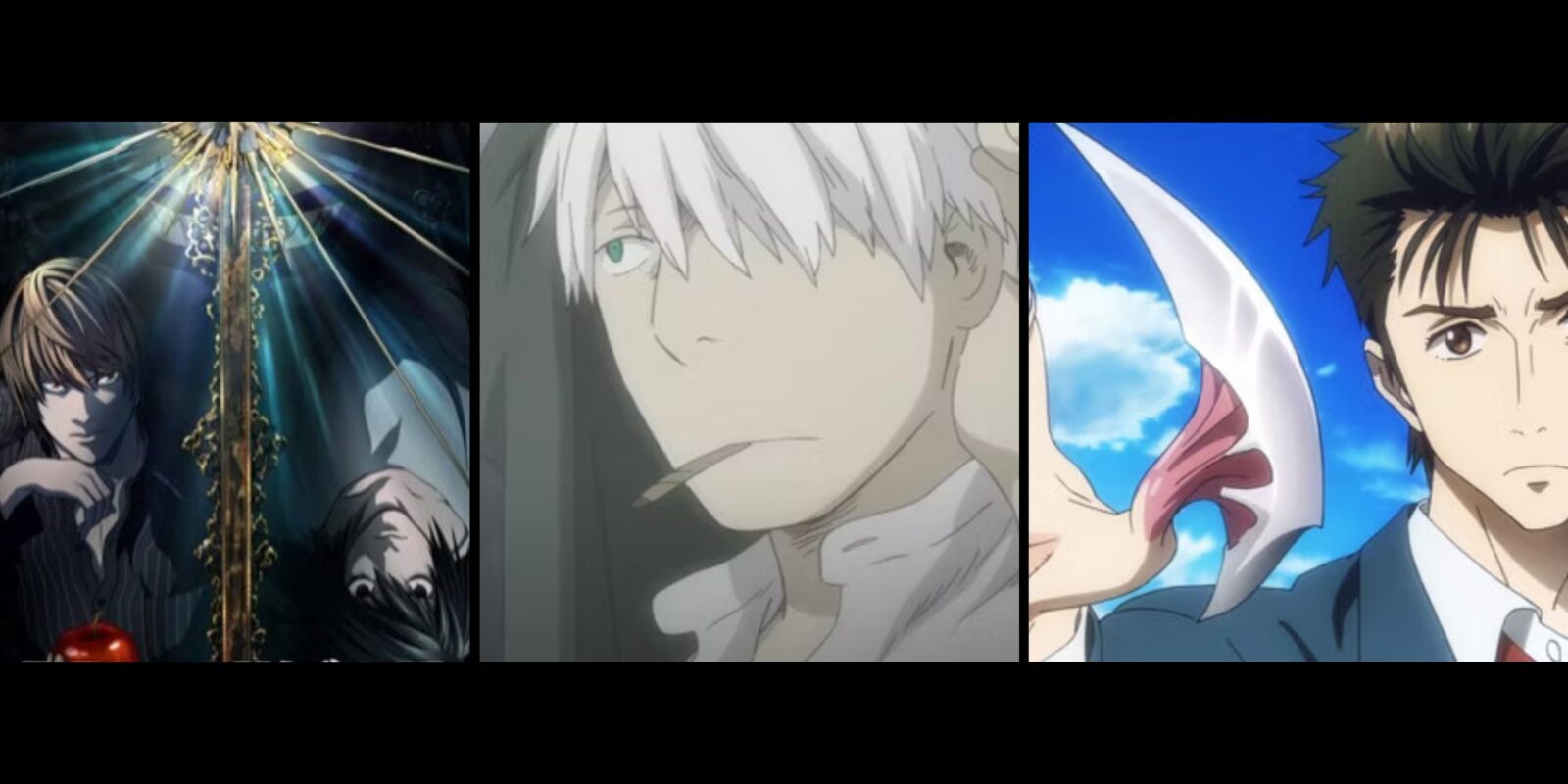

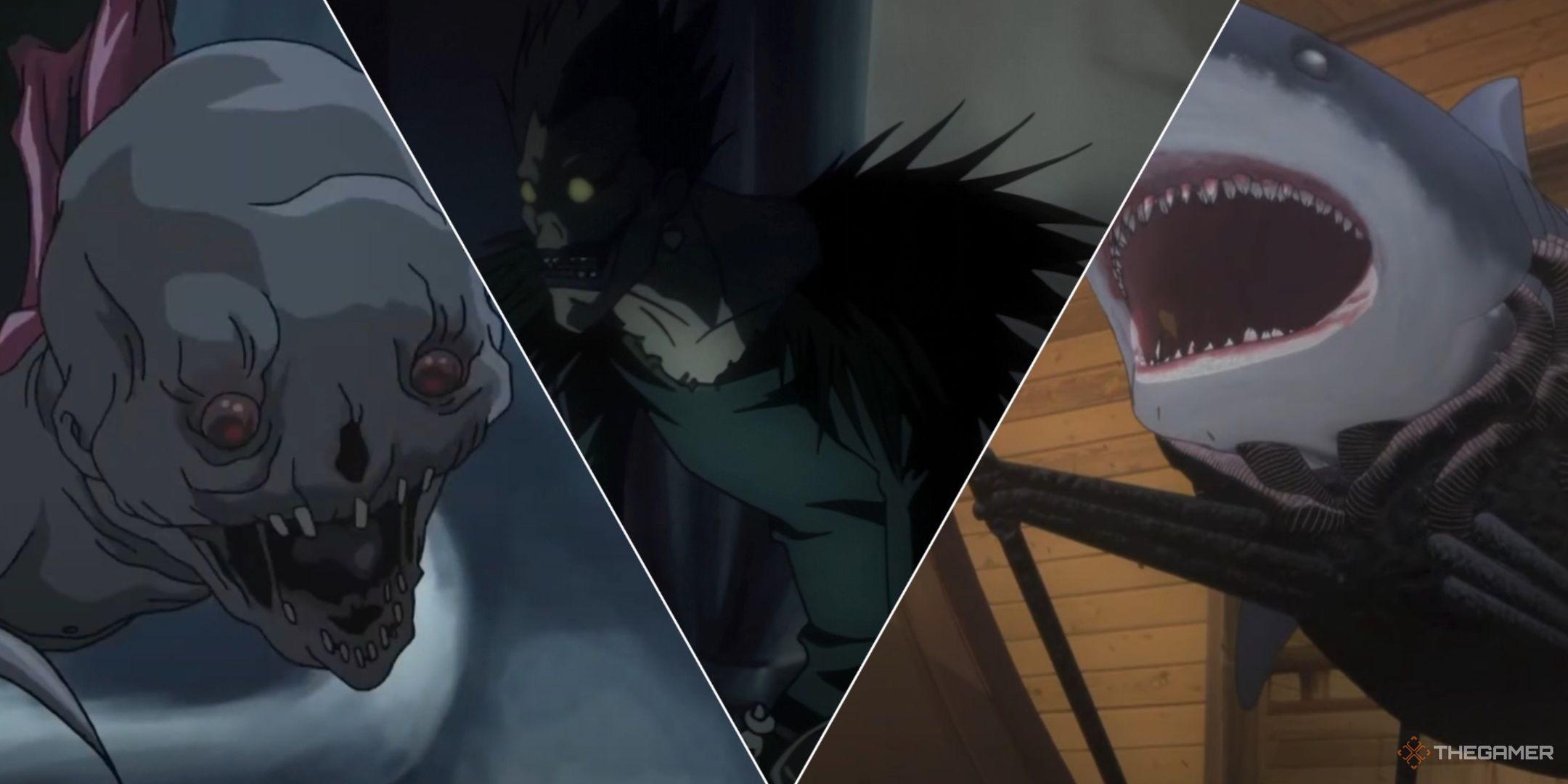
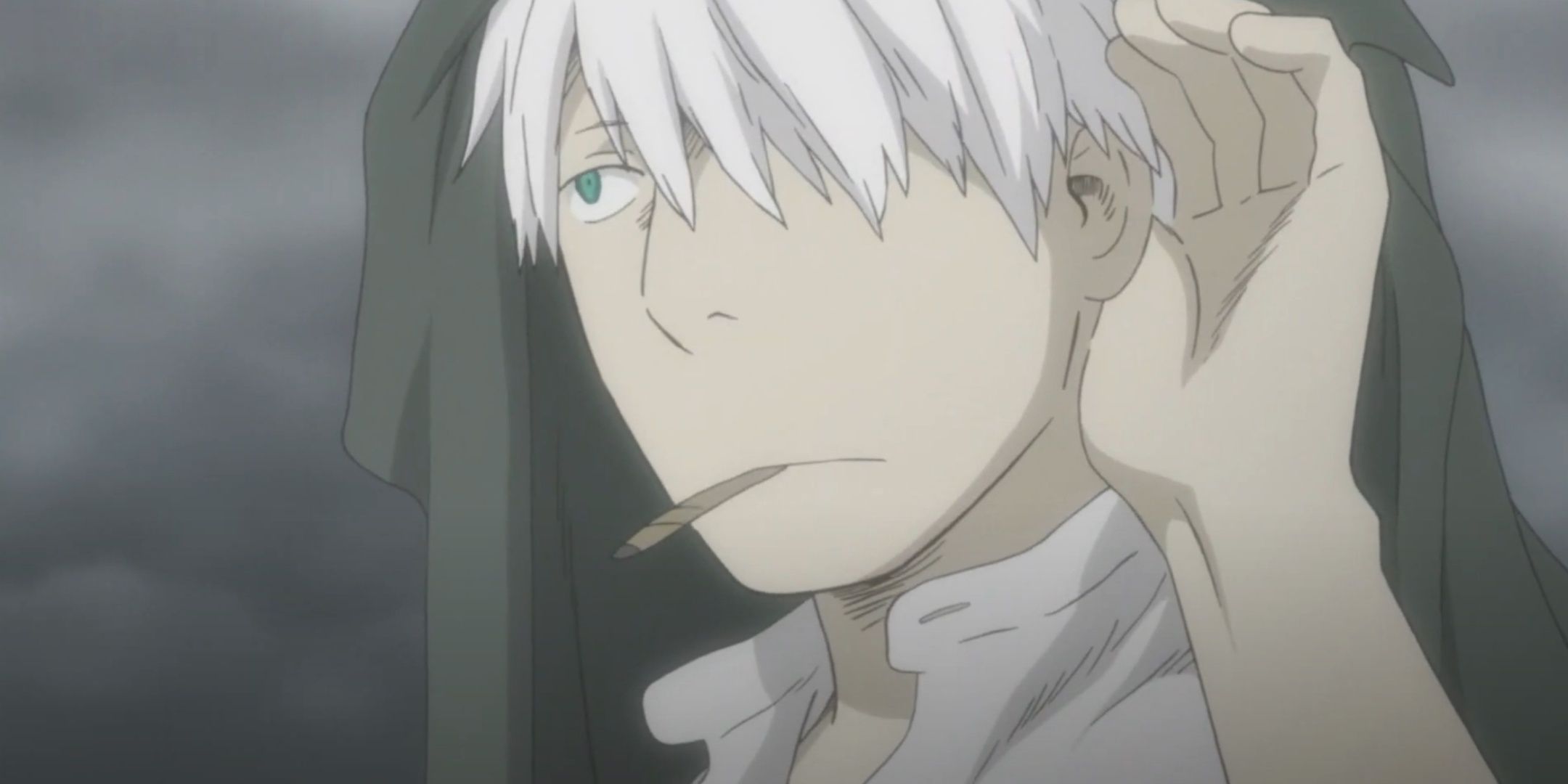
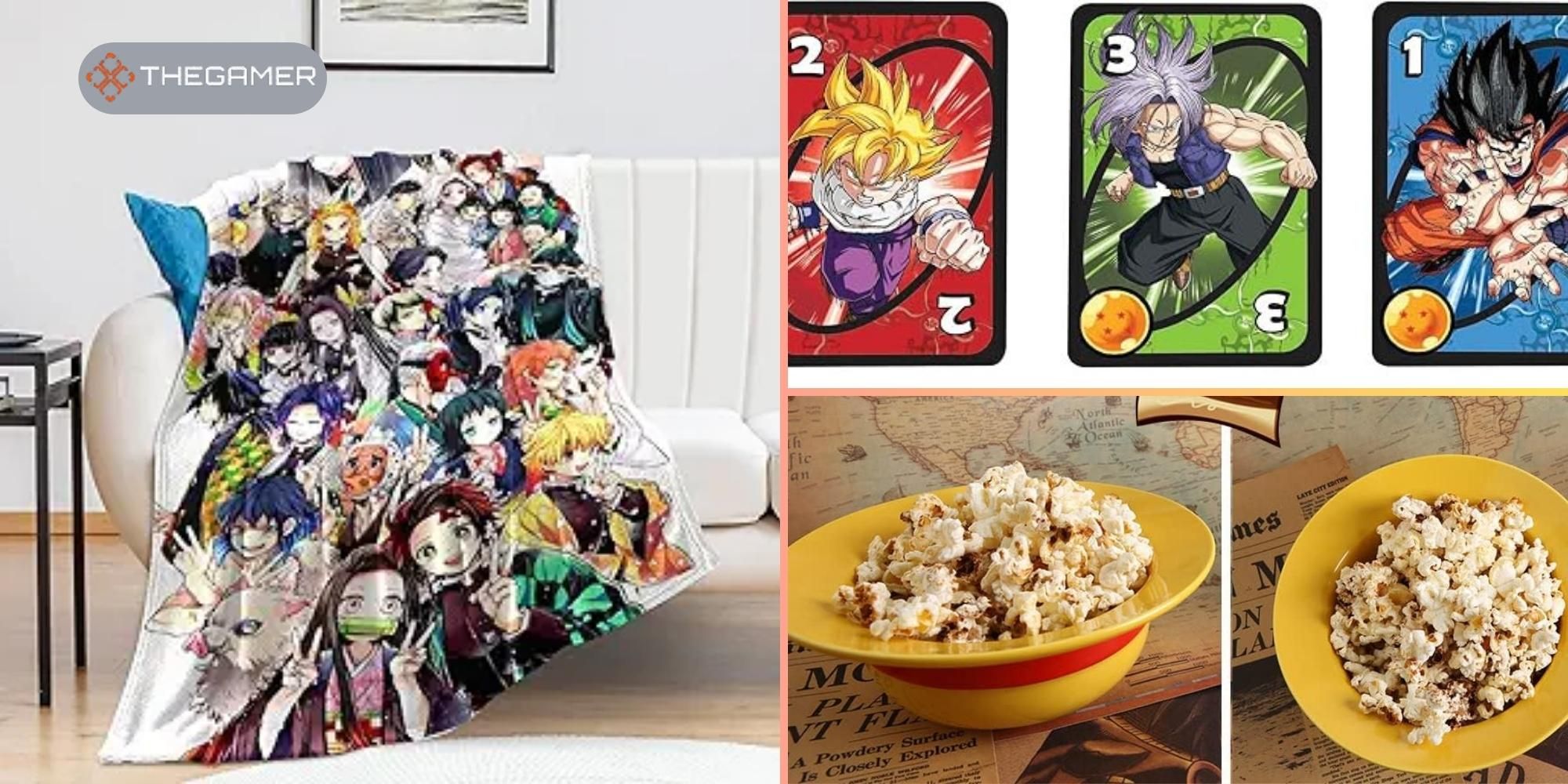


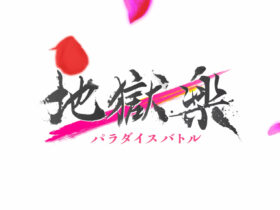
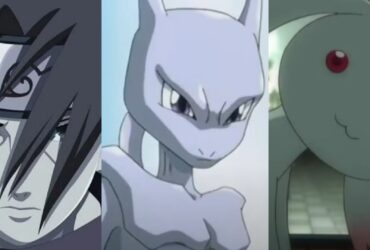

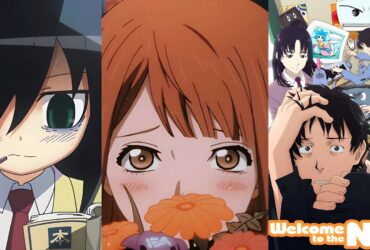
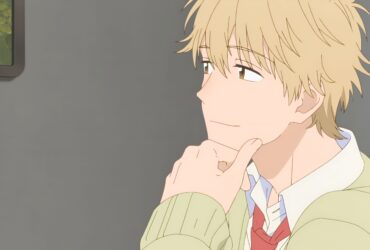

Leave a Reply